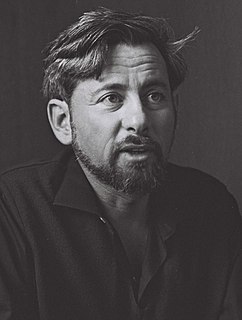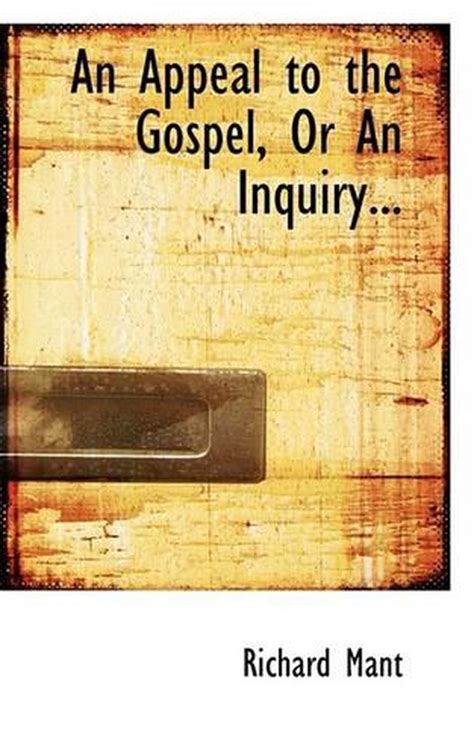A Quote by Ralph Waldo Emerson
Next to the originator of a good sentence is the first quoter of it. Many will read the book before one thinks of quoting a passage. As soon as he has done this, that line will be quoted east and west.
Related Quotes
All this is labour which never meets the eye.... But too open and generous a revelation of the chapter and the page of the original quoted, has often proved detrimental to the legitimate honours of the quoter. They are unfairly appropriated by the next comer; the quoter is never quoted, but the authority he has afforded is produced by his successor with the air of an original research.
The solution is this: There will be a state of Palestine in all of the Occupied Territories of the West Bank and the Gaza Strip. The Green Line, the border that existed before 1967, will come into being again. Jerusalem will be the shared capital - East Jerusalem will be the capital of Palestine, West Jerusalem will be the capital of Israel. All settlements must be evacuated. The security must be arranged for both people, and there must be a moral solution and a practical solution.
When I started graduate school we did this publishing class where we learned about submitting and read interviews with editors from different magazines. A lot of them said they got so many submissions that unless the first page stuck out or the first paragraph or even the first sentence they'll probably send it back. So part of my idea was that if I have a really good first sentence maybe they'll read on a bit further. At least half, maybe more of the stories in Knockemstiff started with the first sentence; I got it down then went from there.
I am a big fan of the electronic book. I hate to see the old bookstores close, but they have to reinvent themselves. I believe the First Edition bookstore will be the next thing. People will read electronically, then decide they want to own that book. The author will then be invited to the old bookstores to sign. I think books will always be with us, but they will fill a different need.
One of the most powerful shocks of the Middle Passage is the collapse of our tacit contract with the universe-the assumption that if we act correctly, if we are of good heart and good intentions, things will work out. We assume a reciprocity with the universe. If we do our part, the universe will comply. Many ancient stories, including the Book of Job, painfully reveal the fact that there is no such contract, and everyone who goes through the Middle Passage is made aware of it.
Some readers read a book as if it were an instruction manual, expecting to understand everything first time, but of course when you write, you put into every sentence an overflow of meaning, and you create in every sentence as many resonances and double meanings and ambiguities as you can possibly pack in there, so that people can read it again and get something new each time.
In the story of the Creation we read: ". . . And behold, it was very good." But, in the passage where Moses reproves Israel, the verse says: "See, I have set before thee this day life and good, and death and evil." Where did the evil come from? Evil too is good. It is the lowest rung of perfect goodness. If you do good deeds, even evil will become good; but if you sin, evil will really become evil.
Some day, as soon as a book is printed it will be simultaneously put into digital form. That will be a wonderful research tool, but it will never substitute for holding the book. I feel certain that at least within my lifetime, everyone will still be going to the bookstore and buying printed books. Thank God I'll die before I have to worry about whether the printed book itself will disappear. That's something I don't want to live to see.
When I am working on a book or a story I write every morning as soon after first light as possible. There is no one to disturb you and is it is cool and you come to your work and warm as you write. You read what you have written and, as you always stop when you know what is going to happen next, you go on from there. You write until you come to a place where you still have your juice and know what will happen next and you stop and try to live through until the next day when you hit again.
Too many writers think that all you need to do is write well-but that's only part of what a good book is. Above all, a good book tells a good story. Focus on the story first. Ask yourself, 'Will other people find this story so interesting that they will tell others about it?' Remember: A bestselling book usually follows a simple rule, 'It's a wonderful story, wonderfully told'; not, 'It's a wonderfully told story.'









































